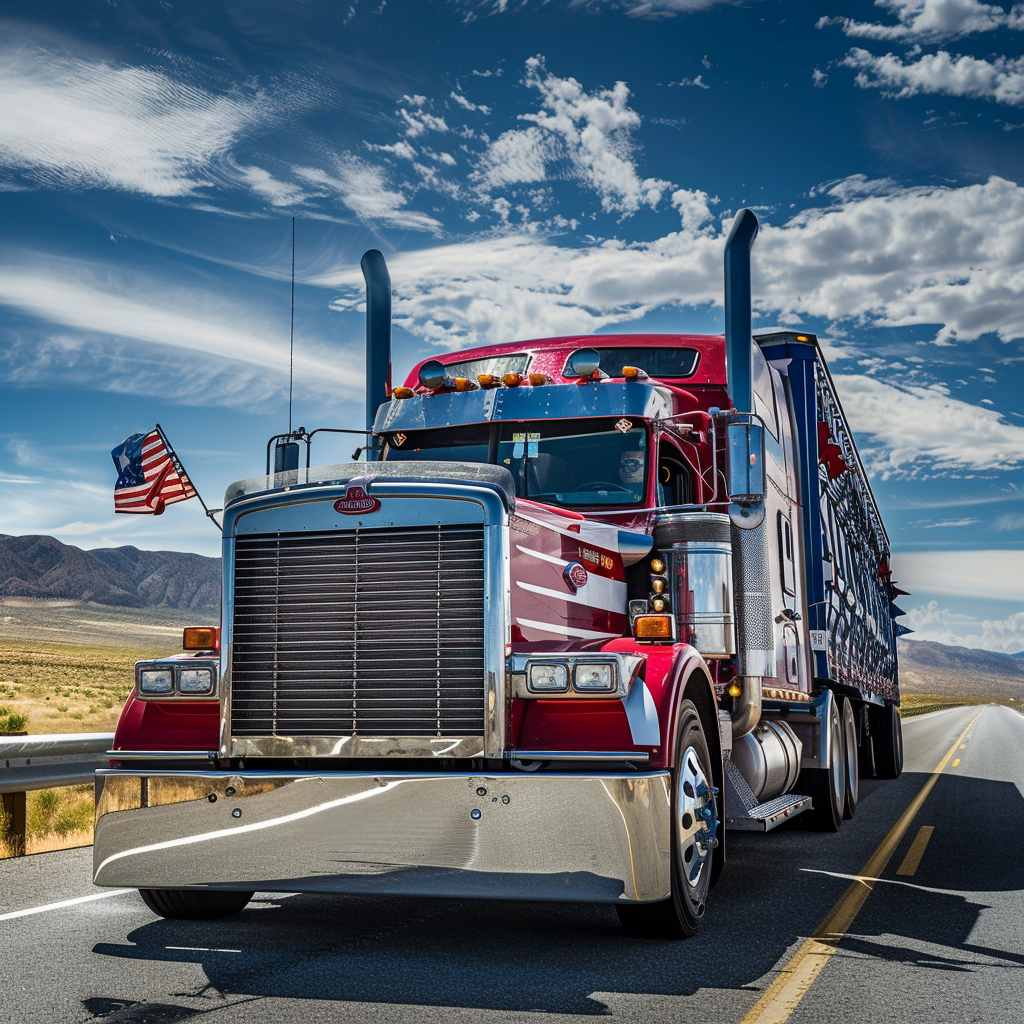Iowa Oversize Permits
Freedom Heavy Haul can offer expedited Pickup and Delivery for any size shipment anywhere in the USA. Contact us today for No Hassle, No Pressure Pricing.
Iowa oversize permits are crucial for the legal transportation of large loads that exceed standard vehicle dimensions on public roadways. These permits facilitate the movement of oversized vehicles and ensure road safety and infrastructure protection. Oversize permits are applicable not only to commercial heavy vehicles but also to specialized transport carrying wide or tall loads that cannot be easily disassembled. In this article, you will learn about Iowa Oversize Permits.
Significance and Definition of Iowa Oversize Permits
Oversize permits are vital in maintaining the safety and efficiency of transportation infrastructure. They are issued to prevent damage to road surfaces and structures, reduce the risk of accidents, and minimize traffic disruption. These permits stipulate conditions under which oversized loads may travel, including routes, times, and necessary support vehicles.
Scope and Applicability for Different Vehicle Types
The scope of Iowa oversize permits covers a wide range of vehicles and equipment, including construction machinery, large industrial components, and pre-fabricated structures.

These permits are not just for traditional commercial vehicles but also for any vehicle combination that exceeds normal size or weight limits defined by Iowa state law.
Permit Categories and Details
Iowa offers a variety of permits to accommodate different transportation needs, from single trips to annual multi-use permits. Understanding the specific categories and requirements is crucial for compliance and efficient planning of transport operations.
Diverse Types of Permits Offered
The state provides several permit types, including single trip, round trip, and various specialized permits for specific industries or vehicle types. Each permit type is designed to match the particular needs of the transport, considering factors such as distance, frequency, and load characteristics.
Explanation of Single, Round Trip, and Special Permits
Single trip permits are suitable for one-way journeys, while round trip permits cover the same vehicle returning on the same route. Special permits may be issued for specific industries, such as agriculture or energy, where vehicles regularly carry oversized loads.
Annual and Multi-Trip Options
For frequent transporters, annual and multi-trip permits offer a convenient solution, allowing multiple journeys under one permit. These are cost-effective options for businesses that require regular transportation of large loads across state lines.
Procedure for Obtaining Permits
Obtaining an oversize permit in Iowa can be done through several channels to accommodate the preferences and requirements of different applicants.
Online Applications Through the Iowa Automated Permitting System (IAPS)
The Iowa Automated Permitting System (IAPS) provides a streamlined online application process that allows users to register, apply, and pay for permits electronically. This system is accessible and efficient, making it the preferred method for many users.
Steps for Mail-In Applications
For those who prefer or require paper applications, Iowa DOT accepts mail-in applications. This method involves downloading and completing a detailed application form from the DOT website and mailing it with the appropriate fees.

Obtaining Permits Directly at Iowa DOT Offices
Applicants can also choose to visit Iowa DOT offices to submit their applications in person. This method is beneficial for those seeking direct interaction with DOT officials to discuss specific details or complexities of their transport needs.
Operational Guidelines and Limitations
Oversize permits come with strict guidelines designed to protect public safety and infrastructure. These include restrictions on travel times and routes, especially during peak traffic hours or on roads unsuitable for heavy loads.
Regulations on Operating Times and Conditions
Permitted vehicles may generally travel during daylight hours and are restricted during evening and nighttime hours to minimize traffic interference. Some permits may allow for night travel if the vehicle is equipped with adequate lighting and escorts.
Special Restrictions During Holidays and High Traffic Periods
Travel restrictions often tighten around major holidays and during special events to avoid traffic congestion. Iowa DOT provides a calendar of restricted dates and times to help carriers plan their routes accordingly.
Guidelines for Night Travel and Exceptional Circumstances
In exceptional cases, such as for extremely large or essential loads, Iowa may issue special permits that allow for night travel. These permits require additional safety measures, such as police escorts and advanced route planning.
Cost Analysis for Permits
The cost of oversize permits varies depending on the type, duration, and specifics of the load and route. Understanding these costs is essential for budgeting in transport planning.
Detailed Pricing for Various Permit Types
The fees for oversize permits in Iowa are structured to accommodate different types of transport needs. Single trip permits might cost less than round trip permits, and special industry-specific permits such as those for renewable energy equipment could carry different fees. Detailed pricing can be found on the Iowa Department of Transportation website, ensuring carriers can budget accurately for their transport needs.

Economic Benefits of Annual and Multi-Trip Permits
For businesses that frequently move oversized loads, annual and multi-trip permits present substantial cost savings. These permits reduce the need for repeated applications and fees, streamlining the process and allowing for more predictable budgeting over the long term.
Regulations and Compliance
Adhering to permit regulations is critical not only for compliance but also for the safety of road users and infrastructure. Iowa sets forth specific dimensions and weight limits for vehicles operating under an oversize permit, and failure to comply can result in significant penalties.
Standards for Vehicle Dimensions and Weight
Iowa’s regulations define maximum allowable dimensions and weights for oversize vehicles. Permits are required for any vehicle that exceeds these limits, and these permits detail the specific conditions under which the vehicle may operate, including routes, times, and necessary support measures like pilot cars.
Consequences of Non-Compliance and Overloading
Violations of permit conditions can lead to fines, suspension of permits, or even legal action. Non-compliance can also pose serious risks to public safety and cause damage to roads and bridges, emphasizing the importance of strict adherence to permit stipulations.
Additional Support and Resources
To assist carriers in managing their permit needs effectively, Iowa provides several resources and support services. These resources are designed to help carriers understand and fulfill their permit requirements comprehensively.
Contact Information for Permit Assistance
The Iowa Department of Transportation offers dedicated support for questions regarding oversize permits, available both through email and phone. This direct line to experts can clarify any confusion and help carriers navigate the permit process smoothly.
Directory of Commercial Permit Services
For carriers who prefer not to manage the permit application process themselves, Iowa provides a list of approved commercial permit services. These services handle the application process and ensure that all regulatory requirements are met, offering convenience and peace of mind.
Concluding Insights
Oversize permits in Iowa are essential for the safe and legal transport of oversized loads. Understanding the different types of permits, the application process, and compliance requirements is crucial for carriers operating in this space.
Best Practices for Permit Management
Efficient permit management involves understanding the specific requirements and restrictions of each permit, planning routes carefully, and maintaining good communication with the Iowa DOT. Staying informed of any changes in regulations can also help carriers avoid penalties and disruptions.
Anticipated Changes in Permitting Procedures
As transportation technologies and infrastructures evolve, so too may the regulations surrounding oversize permits. Staying ahead of these changes can help carriers adapt more easily and maintain compliance as they continue to operate across Iowa’s roadways.







